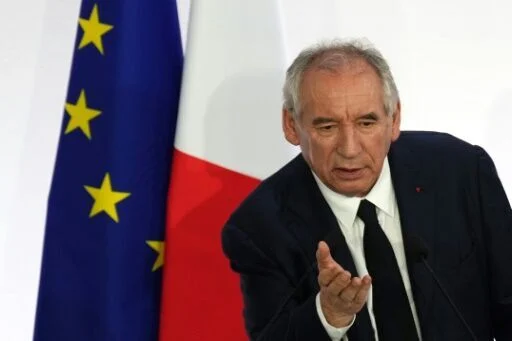Paris: France is once again on the brink of political turmoil as Prime Minister François Bayrou’s shock decision to call a parliamentary confidence vote on his debt-reduction plan threatens to unravel President Emmanuel Macron’s already fragile majority in the National Assembly.
Bayrou, appointed earlier this year in a bid to stabilize a fractured centrist coalition, announced Monday that lawmakers would vote on his government’s fiscal roadmap on September 8. He described the move as a bid to provide “clarity” over the country’s economic direction. Instead, the announcement has sparked a wave of opposition and shaken financial markets.
Political Opposition Mounts:
Leaders from across the political spectrum swiftly rejected the proposed plan, signaling they would vote against Bayrou’s government.
“We need a different prime minister and, above all, a different policy,” declared Socialist Party leader Boris Vallaud. Leftist firebrand Jean-Luc Mélenchon escalated the rhetoric further, calling on President Macron himself to step down.
The stakes are high: if Bayrou loses the vote, it could trigger his resignation and possibly lead to a snap election, echoing the political chaos of 2024 when Macron dissolved parliament in a failed attempt to consolidate power.
Markets React Sharply:
Financial markets wasted no time responding to the political uncertainty. The CAC 40 index dropped nearly 2% in early trading Tuesday, extending the previous day’s losses. Meanwhile, yields on 10-year French government bonds spiked to their highest level since March, signaling investor concern over the country’s fiscal stability.
“There is a risk we would like to avoid,” admitted Finance Minister Éric Lombard, when asked about the possibility of France falling under IMF scrutiny if its debt trajectory worsens. He confirmed that behind-the-scenes talks with opposition leaders were ongoing in a last-ditch effort to avoid a collapse.
Echoes of the 2024 Election:
The unfolding crisis has revived memories of Macron’s controversial decision in 2024 to dissolve parliament, a move he justified at the time as a call for “clarity.” That gamble backfired, resulting in a fragmented National Assembly and a weakened centrist bloc, complicating the passage of key legislation.
Now, Bayrou’s move—reportedly made with Macron’s blessing—has revived the prospect of another electoral showdown, though only the president holds the power to dissolve parliament.
Justice Minister Gérald Darmanin acknowledged the gravity of the situation, stating that “another snap election cannot be ruled out” if the government fails to secure the vote.
What’s at Stake:
Although France is not currently facing a fiscal collapse, the confidence vote has cast a harsh spotlight on the government’s capacity to control public debt amid persistent political gridlock. Analysts warn that failure to push through a credible fiscal plan could further erode investor trust and raise borrowing costs for the eurozone’s second-largest economy.
With opposition parties standing firm and markets flashing red, Bayrou’s high-stakes maneuver could determine not only the fate of his premiership but also plunge France into yet another period of political and economic instability.

















